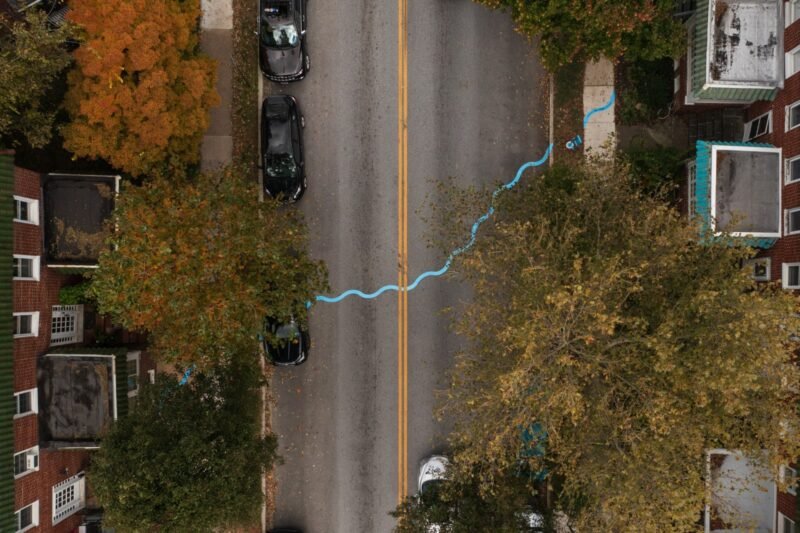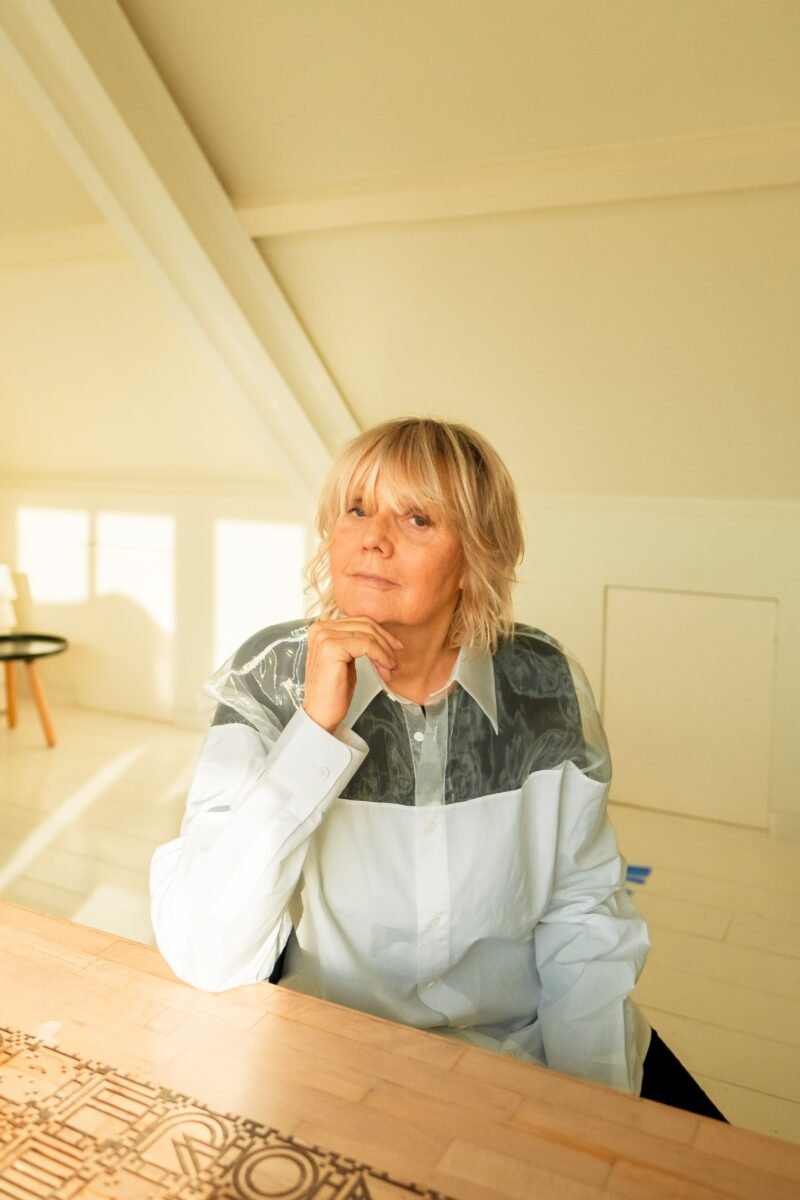Hand-Digging Tunnels In The City: The Cure To Mental Stress
Leanne Wijnsma is an artist who you may have seen making headlines recently if you live in Holland. This was for digging holes in the vicinity of Amsterdam and beyond. But why is she doing this? And why are we excited about it?
Leanne carries out her excavating to, very literally, escape the modern world. She feels that in our current societal set-up, despite the ceaseless opportunities and choices in which we can indulge, there is simply too much choice. The mental stress associated with existing in advanced civilisation has reached its breaking point with Leanne and drove her outside to rollick in the animalistic ritual of digging. We decided to get a hold of the artist and ask her a few questions on her engaging approach to the movement toward digital and societal detox.

Leanne Wijnsma
1. Explain the project to the average reader — what drives Escape and why?
“Escape is an action triggered by the paradox of freedom. Littered with choices, our society offers an apparent freedom. Video streamed on demand anytime, even the most bizarre questions answered via online search, products you weren’t yet aware of you needed recommended specifically for you. Escape is a response to this world in which everything seems possible, in which we are always connected, always available. The digging is a basic act to escape and to disconnect. The act itself is an important experience, digging the soil to find fundament and autonomy. Escape is an urge to do something really banal yet essential. The tunnel doesn’t lead to freedom. You’ll see that the tunnel ends just a few meters from where it starts. The choice to dig however becomes the freedom itself.”
2. In what ways does the fluid city appeal to you? What aspects deter you?
“Both, really. The fluid city is amazing. No complaints. Everything is here, we can go anywhere anytime. We live in such luxury. But because everything is possible, we are confronted with an unprecedented amount of choices every day. And it is a whole lot of responsibility to deal with all of them.
This choice-architecture that is laid out for us sometimes frightens me. This whole structure, this system we live in that seems fully planned. Here you go left, here you should go right. Sometimes it feels like we are all ants, living on one big pile, commuting to work, back at the end of the day. And it is our own choice. Or is it? That’s all I’m wondering. I love the structure of the city and its endless possibilities, just after a while I start wondering: who are we, who am I? And then I want to dig.
This whole thing is a very paradoxical idea. I don’t want an exit. Sitting in front of the computer screen for more than 12 hours a day makes me want to work physically. The digging is a search for something animalistic in that sense also. It is very instinctive. It is a way to stop thinking – digging straight into the soil to get away from it all. Half ways this role changes. I miss the sound of the incoming emails. I need to fulfil my ambitions. Ready to come out again, I start digging up. After a day of digging, after finding my way back out, I am totally ready for the fluid city again.”
3. How do you reconcile these contradictory feelings in your day-to-day life?
“Escaping every now and then. Creating alternative paths in our fundament.”
4. How have you seen others deal with these contradictions?
“Some excerpts from interviews I held in 2013: “There’s this world of opportunities, always luring me in” (A.K., Berlin), “I get really frustrated when I miss something I could have or should have know about” (E.P., New York) and “It feels like I don’t belong to any place, but at the same time I am everywhere” (L.R., Hong Kong). Those quotes are beautiful but also questionable. They hold contradictions in themselves. They hold power, but are fragile at the same time. The contradictions vary from person to person, but the one thing they have in common is that they result in stress. Almost a nice kind of stress that we need to keep on going, not allowing ourselves to even stand still, blind to the possible need to take a break.
That “being everywhere at the same time” isn’t necessarily freeing can be a super confusing thing. It might be a symptom of our generation. How others deal with those contradictions? Therapy, is what I see a lot. Expectations are getting too high. There is a need for reflection, building something constructive and getting back to the core.”
5. Do you think methods of escape will become more difficult to find in an increasingly fluid world?
“Interesting to think about that. I would say no, the more fluidity, the easier to escape! But technically yes. I am afraid that it is becoming harder and harder to do something off-track. Security and police are not a big fan of someone disrupting the structure. A good friend of mine from Berlin compared the tunnels with graffiti. Finding a good location where you can set your tag, out of view of the security system but still somewhere where it is seen by the public.
Another escape, one closely related to the digging, is sports. Before 9 and after 5 you’ll find a massive amount of people in the gym, or going for a jog in the park. Me too. I like cycling. But since I downloaded the Strava app every ride is recorded. The app keeps track of my routes, speed, altitude and the burned calories. I thought it was fun to keep track of the routes, but as a result I start feeling stressed when I don’t cycle for a week. Especially when I see my Strava friends did go for really long rides. Without even wanting it, it’s main goal seems to shift to sharing and comparing, encouraging competition. There’s several cases in the US where cyclists died in accidents while trying to reclaim #1 speed records!

Curious about the results, I started recording heart rate in my past 4 escapes also. In one of them I had to pull out a 100kg rock. My heart was going like crazy. Unluckily the camera blocked and the camera didn’t record, and so I missed the data. I was furious! It felt like I did it for nothing and it took me a day to get over it.
Cameras and phones will come with all of those tracking features as a standard. GPS, heart rate, everything. It is all happening so fast and becoming normal before we know it. Personal tools start quantifying our everyday life, at home, while asleep, at work and in our leisure time. It will become difficult to choose to not be tracked. Comparing happens automatically, all to give you insight in your behaviour. A notification in case you take the wrong turn, a supportive note to go for a run when you didn’t reach your 2000 steps for the day yet, an energy saving suggestion because your house is warmer than the average person in your neighbourhood. Never offline, never off-track, impossible to get lost. The normal becomes the standard. And in a standardised world, it will definitely be more difficult to find autonomy.”
Interested in hearing more? Leanne Wijnsma will be giving a talk during the 32nd edition of PechaKucha Amsterdam on Wednesday 22 April at club/restaurant Radion.



